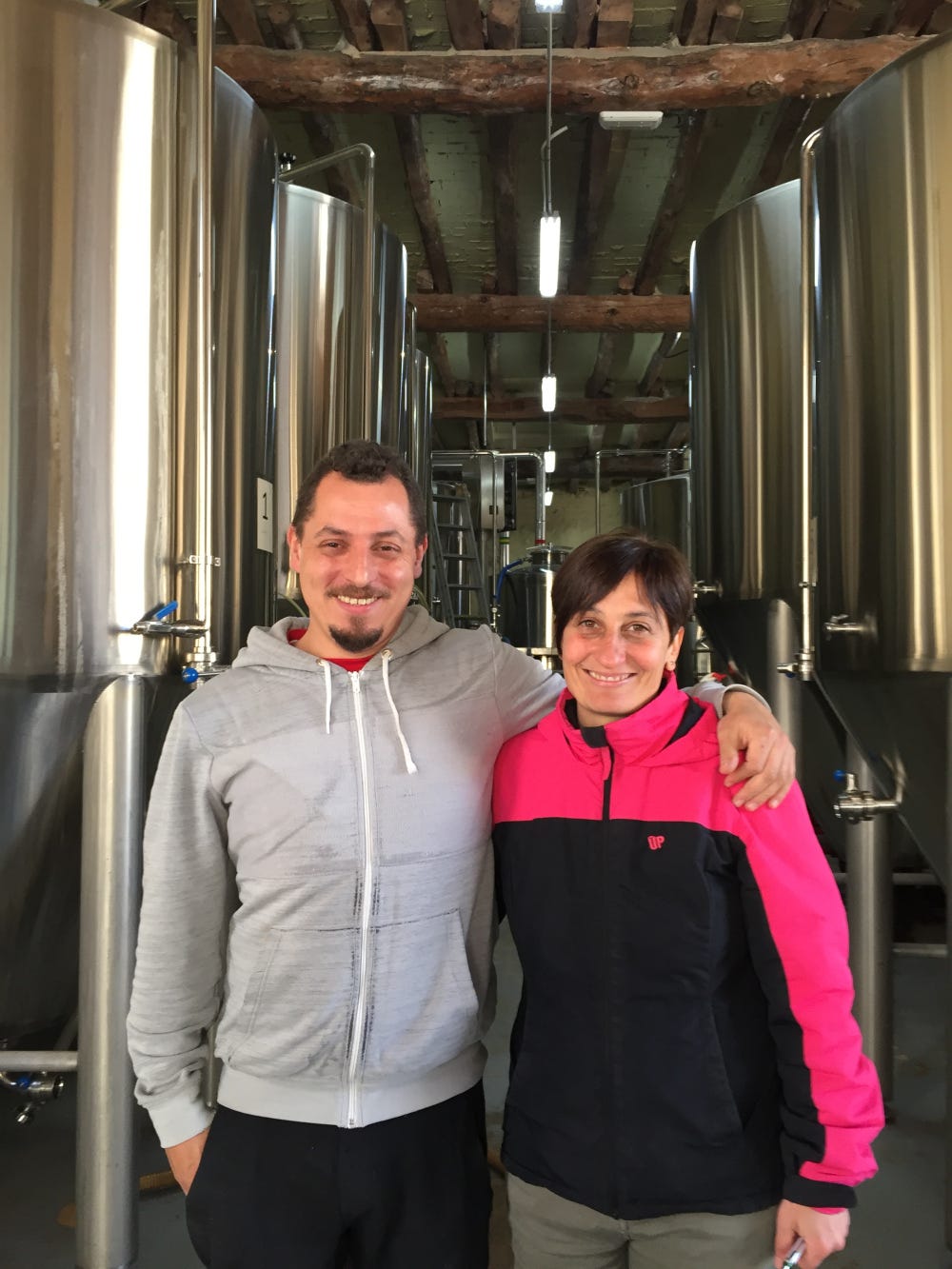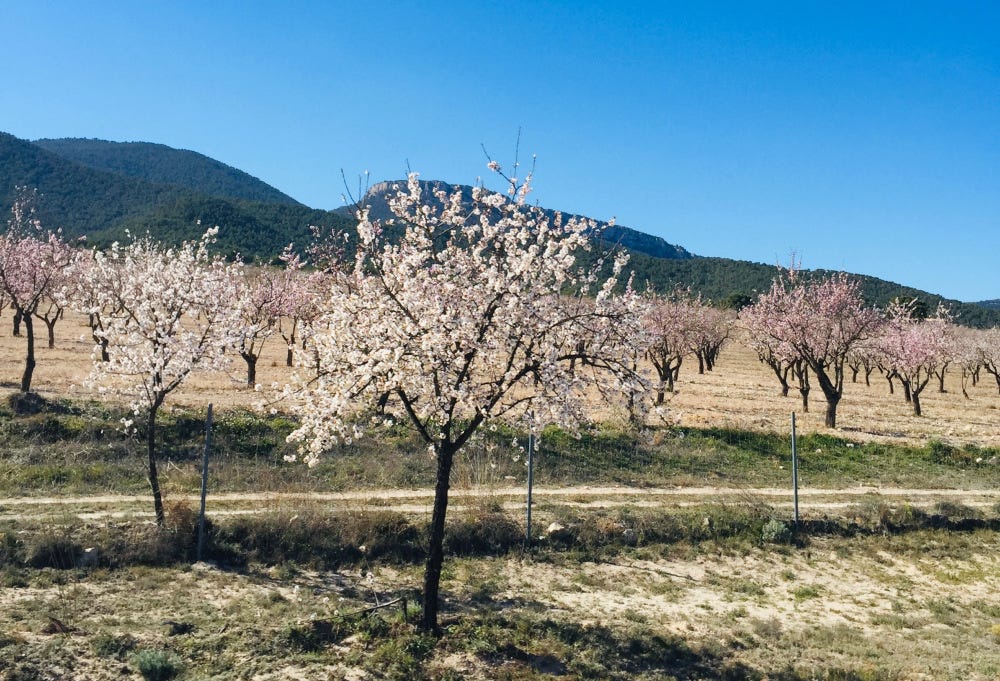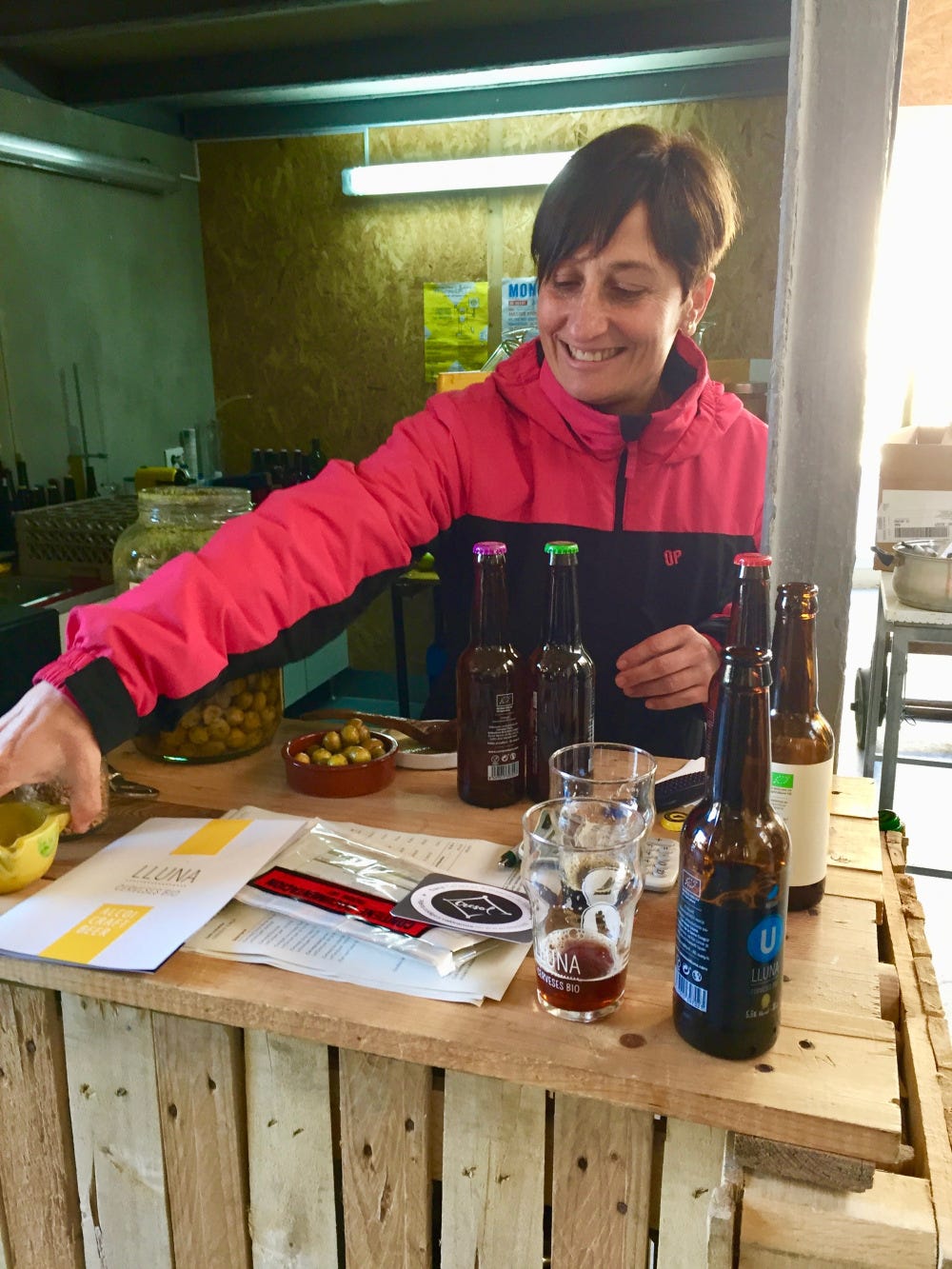Cerveses Lluna Bio Beer leads organic beer production in Spain

Cerveses Lluna has been producing certified organic craft beer in an employee-owned cooperative since 2008. They’ve been passionate about running a business in a way that is democratic and sustainable from the beginning. Although their production is small (40,000 liters a year), they are the largest producer of organic beer in Spain (where IPA is pronounced, eee-paah).
In February 2019, I had a chance to interview co-founder, Maria Vicente, while co-founder, David Seguí, was brewing beer in their riverside brewery in Alcoi, Spain (pop. 55,000).

Their purpose was to create a democratic work place where the workers were owners and participated in strategic decisions. They wanted to create jobs that, by design, were improving the world and protecting the environment, so focused on producing craft organic beer using a cooperative business form.
Other sustainability measures they employ include local purchasing wherever possible, conserving water and energy, using 100 percent renewable solar energy, rehabilitating a textile mill for their brewery space, and re-purposing all of their used grains and hops as feed and compost for local organic farmers.
Industry Context
Craft beer? Organic beer? Worker-owned cooperative brewery? Powered by renewables? Even among the more than 6,200 craft breweries in the U.S., you would be hard pressed to find an entity that is all four, like Cerveses Lluna. When Cerveses Lluna started in 2008, people in Spain were not familiar with craft beer so they have been pioneers for this industry.
Sustainability
Beer is primarily water. The rest is grains, hops, and yeast. All of Cerveses Lluna’s ingredients are certified organic for their six styles of beer and additional seasonal varieties. The water comes from a source in the natural mountain park adjacent to Alcoi. While they are committed to supporting local businesses (sources of their bottles, olives, and seasonal organic ingredients, like cherries), currently there are not organic farmers in Spain who produce the amount of ingredients they need. Their main suppliers are from Germany and England, and a Canadian cooperative that grows hops.

Cerveses Lluna stands apart from many other breweries in their focus on climate change. They have a statement about their support for the Paris Agreement and the Climate Change Solutions campaign on their website. Beyond the talk, they are among a growing cadre of craft brewers in the world that use 100 percent renewable electricity produced from solar power. As members of Senecocooperative, they purchase renewable energy from Enercoop, a renewable energy cooperative about an hour from their brewery.

The Cooperative Difference
Cooperative breweries are uncommon. In Spain, three cooperative breweries produce organic craft beer. In Vermont, home to a vibrant and growing craft brewing industry, there are no employee-owned cooperative breweries. Full Barrel Cooperative is in the early formation stages, and will be a consumer cooperative created to serve beer drinking members. Several other consumer coops for beer lovers are scattered around the country. Black Star Co-op and 4thTap Co-op, both in Texas, are worker-owned brewery cooperatives; Black Star also has thousands of consumer members.
Cerveses Lluna’s commitment to organic production is drafted into their cooperative governance documents along with their overall focus on the international cooperative principles.
Cerveses Lluna’s commitment to organic production is drafted into their cooperative governance documents along with their overall focus on the international cooperative principles, which provides a legal durability to their purpose and goals, guiding their day to day operations.
While the brewery has weathered financial difficulties, shutting down organic production — the core of their business strategy — would be unthinkable. By comparison, Wolaver’s Fine Organic Ales, the first USDA organic certified beer, stopped production in 2015:
In 2002, Wolaver’s Organic Ales bought the Otter Creek brewery and its brands, relocated to Vermont and took over production of both portfolios. After years of modest growth, Otter Creek, in a move to make the business more financially stable, sold to Long Trail/Fullham & Co. in 2010.
Within five years, the parent company shut down Wolavers and stopped producing organic beer, instead prioritizing expanding conventional craft beer production by Otter Creek. The parent company cited cost and availability of organic ingredients, as well as the difficulty of separating organic beer production from the rest of its production.
While an impressive brewery in many respects, New Belgium BrewingCompany stopped producing its one organic beer, Mothership Wit, a gold medal winner at the Great American Beer Festival. They also cited the high cost of organic ingredients and weak sales.
In a cooperative like Cerveses Lluna that scenario is very unlikely because of the democratic control of the members (one member, one vote) and the legal formation documents, which commit them to using organic ingredients. They remain resilient and optimistic about growing the business in 2019.
Melissa Scanlan was the co-founder, with Gus Speth, of the New Economy Law Center, which she now directs. Professor of Law at Vermont Law School, she has served as Associate Dean of the Environmental Law Program and Director of the Environmental Law Center. She can be reached at mscanlan@vermontlaw.edu.
Fifty by Fifty is working to transform the U.S. economy by growing employee ownership. Join our campaign, and we’ll send our monthly newsletter, filled with great company stories, right to your in box.
